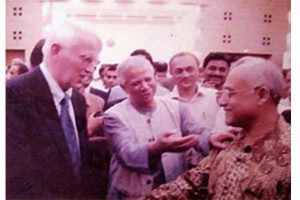
A delicate but highly contagious virus, roughly one-900th the width of a human hair, is spreading from person to person around the world. The coronavirus, as it’s known, has already infected people in at least 60 countries.
Because this virus is so new, experts’ understanding of how it spreads is limited. They can, however, offer some guidance about how it does — and does not — seem to be transmitted.
If I cross paths with a sick person, will I get sick, too?
You walk into a crowded grocery store. A shopper has coronavirus. What puts you most at risk of getting infected by that person?
Experts agree they have a great deal to learn, but four factors likely play some role: how close you get; how long you are near the person; whether that person projects viral droplets on you; and how much you touch your face. (Of course, your age and health are also major factors.)
What’s a viral droplet?
It is a droplet containing viral particles. A virus is a tiny codependent microbe that attaches to a cell, takes over, makes more of itself and moves on to its next host. This is its “lifestyle,” said Gary Whittaker, a professor of virology at Cornell University College of Veterinary Medicine.
A “naked” virus can’t go anywhere unless it’s hitching a ride with a droplet of mucus or saliva, said Kin-on Kwok, a professor at the Chinese University of Hong Kong’s Jockey Club School of Public Health and Primary Care.
These mucus and saliva droplets are ejected from the mouth or nose as we cough, sneeze, laugh, sing, breathe and talk. If they don’t hit something along the way, they typically land on the floor or ground.
To get access to your cells, the viral droplets must enter through the eyes, nose or mouth. Some experts believe that sneezing and coughing are likely the primary forms of transmission. Kwok said talking face to face or sharing a meal with someone could pose a risk.
Julian Tang, a virologist and professor at the University of Leicester in England who is researching coronavirus with Kwok, agreed.






